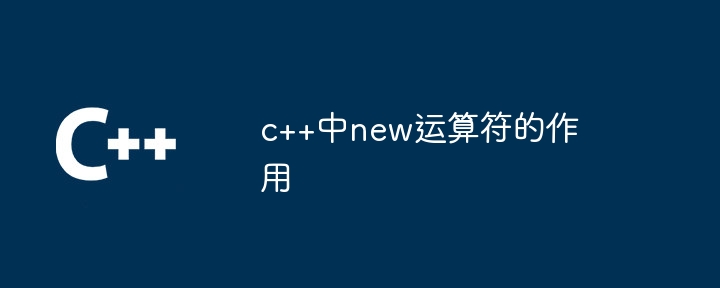Home >Backend Development >C++ >The role of new operator in c++
The role of new operator in c++
- 下次还敢Original
- 2024-04-28 19:18:131035browse
The new operator is used to dynamically allocate memory from the heap and create objects at runtime, returning a pointer to the memory address of the newly created object. Features include delayed object creation, variable size allocation, and on-heap Memory is allocated and freed manually.

The role of the new operator in C
Answer:The new operator is used Dynamically allocate memory and create objects at runtime.
Detailed description:
- Dynamic allocation of memory: The new operator allocates specific memory from the heap (a dynamic memory area) The number of bytes to store the newly created object.
- Create object: It uses the allocated memory space to create an object of the specified type, which can be a class, structure or other custom type.
- Return pointer: new operator returns a pointer to the memory address of the newly created object. This allows programs to access the object, its member functions, and data.
Usage example:
<code class="cpp">// 创建一个名为 myObject 的 MyClass 类型的对象 MyClass* myObject = new MyClass(); // 访问对象的方法 myObject->methodName();</code>
Features:
- Delayed object creation: Objects are created when needed and memory is not pre-allocated when the program starts.
- Variable size allocation: The amount of memory allocated depends on the size of the object.
- Allocate on the heap: The allocated memory is on the heap, not the stack (for automatically created variables).
- Requires manual release of memory: The memory allocated by the new operator must be explicitly released using the delete operator to prevent memory leaks.
The above is the detailed content of The role of new operator in c++. For more information, please follow other related articles on the PHP Chinese website!
Statement:
The content of this article is voluntarily contributed by netizens, and the copyright belongs to the original author. This site does not assume corresponding legal responsibility. If you find any content suspected of plagiarism or infringement, please contact admin@php.cn
Previous article:What is the use of setw function in c++Next article:What is the use of setw function in c++

